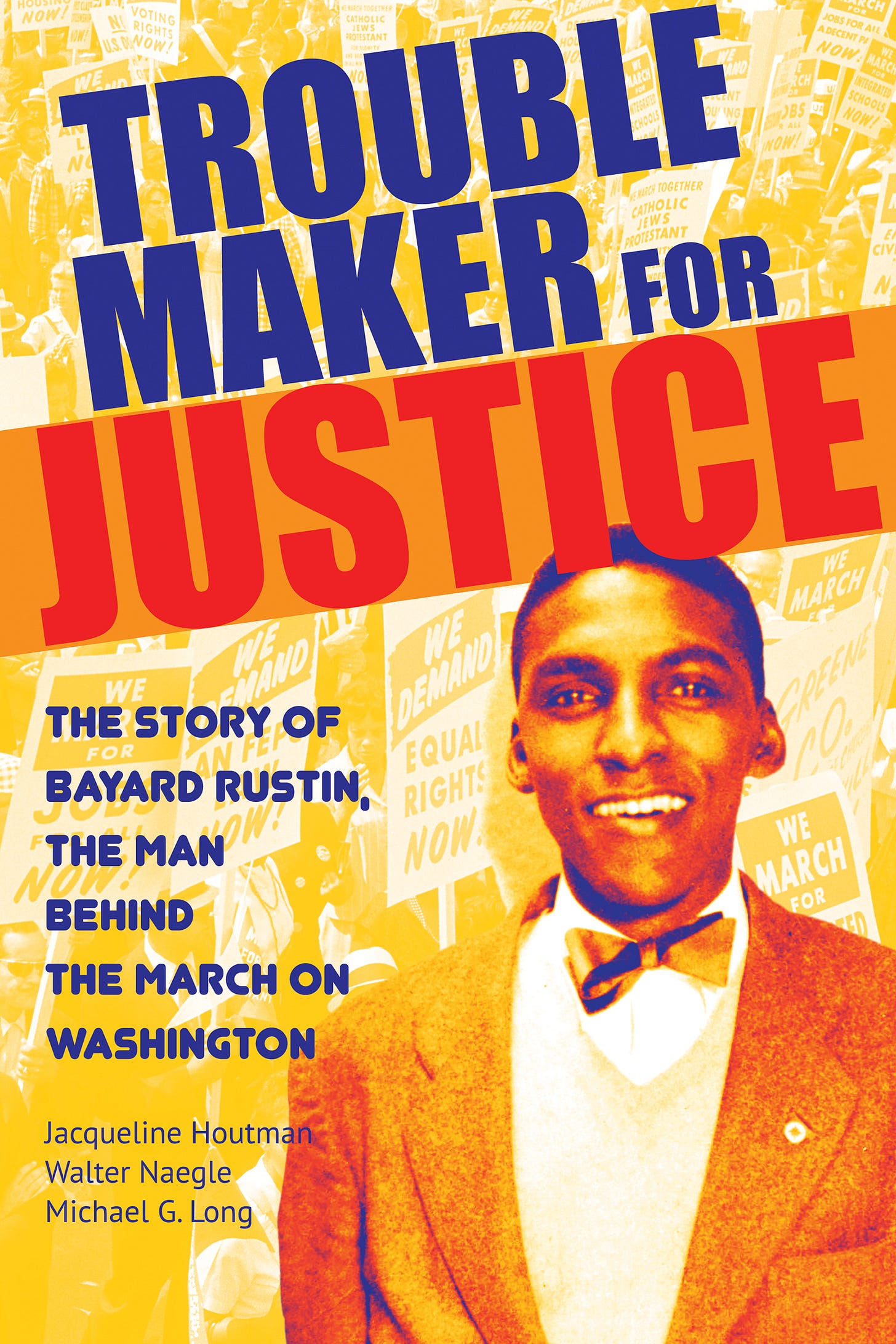Welcome
Welcome to Seeds of Justice, a blog/newsletter about the important early events of the Civil Rights Movement that led to the larger, more well-known events. It’s about the brave and brilliant people who did the hard work without fame, or even recognition. It’s about the seeds of the still-growing tree of justice.
The title, Seeds of Justice, is inspired by a poem written by Bayard Rustin while he was in high school.
I ask of you no shining gold;
I seek not epitaph or fame;
No monument of stone for me,
For man need never speak my name.
But when my flesh doth waste away
And seeds from stately trees do blow,
I pray that in my fertile clay
You gently let a small seed grow.
That seed, I pray, be evergreen
That in my dust may always be
That everlasting live and joy
You manifest in that green tree.
The poem is included in the last chapter of Troublemaker for Justice: The Story of Bayard Rustin, the Man behind the March on Washington (City Lights 2019). My coauthors, Walter Naegle, Michael G. Long, and I thought it summed up the story of Bayard’s life. He did so much of the early foundational work of the Civil Rights Movement, but was largely ignored by the general population and was excluded from history books.
Until now. Thanks to the new film, Rustin, more people are learning about this fascinating man. But the film doesn’t tell the whole story.
If you have seen the film, you know that Bayard was the main organizer of the 1963 March on Washington for Jobs and Freedom.
But did you know that Bayard was arrested for sitting in the front of a bus thirteen years before Rosa Parks refused to give up her seat, sparking the Montgomery Bus Boycott?
Did you know that Bayard organized a freedom ride fourteen years before the larger, more publicized Freedom Rides of 1961?
Nearly every schoolchild knows who Rosa Parks was. We have a national holiday to honor Dr. Martin Luther King, Jr. But Parks and King didn’t act alone, and the Montgomery Bus Boycott did not arise from nowhere.
My intention with Seeds of Justice is to shine a light on the lesser-known people and events that were involved in the struggle for peace, equality, and justice. Many of these events occurred before the 1954 Brown v. Board of Education decision of the US Supreme Court, a decision that traditionally marks the beginning of the modern Civil Rights Movement.
We often talk of the heroes of the Civil Rights Movement. The heroes were not the only people who made change happen. Plenty of other men and women (and children) made valuable contributions. They deserve some attention, too.




